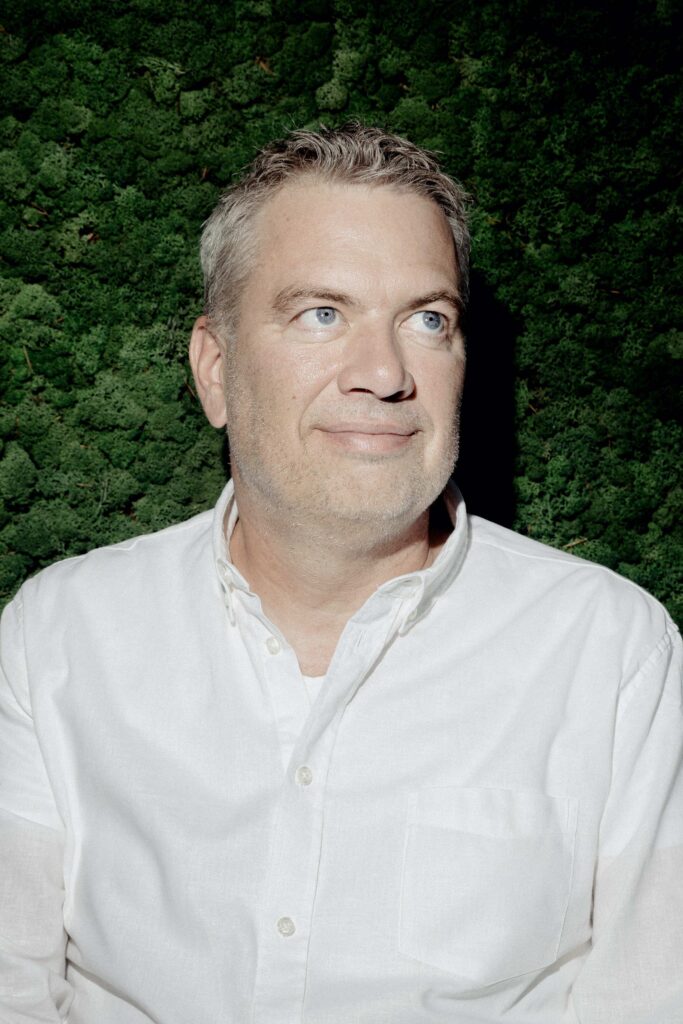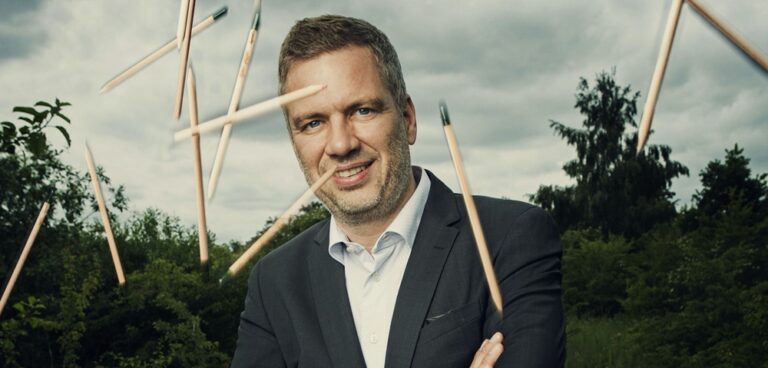
Michael Stausholm is the founder and CEO of SproutWorld, the Danish company behind the world’s only plantable pencils. Here, he talks to SME Today about his passion for sustainability, his fury at fakes, and making customised pencils for Michelle Obama.
What is your business?
SproutWorld makes the world’s only pencils that you can plant after use and grow into herbs, flowers or vegetables. The pencils are simple to use – once they are too short to write or colour with, the stub is planted into soil, with the capsule end down. That capsule contains seeds which can then grow into a range of plants – basil, sage, coriander, daisy, sunflower, forget me not, cherry tomato, melon, eggplant, cucumber or even a spruce tree. We have sold over 80 million Sprout pencils so far, in 80 countries. Each pencil offers an ecological alternative to the incredible 135 million plastic ballpoint pens produced worldwide every day. Our pencils can be customised for companies as eco-friendly giveaways while consumers can purchase themed packs or personalise their pencils for weddings, birthdays, workshops, and christenings.
How did you get started?
A group of robotic students at Boston MIT had been given a task, to ‘design the sustainable office tool of tomorrow’. I came across their project online as they had launched a kickstarter to fund their project. My background is in the textile industry, where I was looking to make more sustainable strides forward, and I loved the simple way this pencil could communicate the need for a circular economy. I purchased the global rights for the product and we launched the company in 2013.
What has been your biggest challenge?
The main challenge we have faced has been the issue of fakes and counterfeits. It’s not just us of course: according to research by MarkMonitor, almost half of brands are now losing sales to counterfeit goods (47%). The impact is not just on those immediate sales that are taken by a fake – it has a ripple effect, on future sales and reputations.
How did you tackle it?
We had noticed counterfeit attempts from regions like China, India, and Turkey. Despite patents and trademarks, we knew manual monitoring was only uncovering a fraction of infringements. Counterfeits were using unsustainable materials that posed ecological risks, introducing non-native seeds that could damage biodiversity. This is literally the opposite of what we want to do.
It was imperative that we removed these harmful products from the market, ensuring that our innovations remained eco-friendly and trusted by consumers, and that the environment was protected – the whole point of our company! We needed a scalable, efficient solution to combat counterfeiters while safeguarding our reputation and sustainability mission.
To tackle these challenges, we partnered with a company called Red Points, deploying AI-powered technology to detect and remove counterfeit listings across platforms such as Amazon, Facebook, and Etsy. By automating monitoring and enforcement, Red Points eliminated the need for time-consuming manual processes. Beyond enforcement, Red Points delivered actionable insights that SproutWorld’s sales team leveraged to actively engage with unauthorised sellers. This unique approach turned infringements into opportunities, converting counterfeit distributors into official partners and bolstering SproutWorld’s market reach.
Over 7,000 infringements were removed across 690 domains, significantly reducing the market presence of counterfeit products. We also identified and reported 1,982 infringers globally, gaining invaluable visibility into reseller networks. These efforts streamlined enforcement, enhanced operational efficiency, and supported SproutWorld’s broader sustainability and circular goals.
Why should businesses be more sustainable?
It’s not just an ethical decision, it’s a sensible business one. Consumers want to make environmentally sound choices. A report from The Roundup last year revealed that 78% of consumers feel that sustainability is important, 62% of people say they “always or often” seek products to purchase because they are sustainable, 55% of consumers are willing to pay more for eco-friendly brands and a whopping 84% of customers say that poor environmental practices will alienate them from a brand or company.
How can businesses make changes?
Be patient – change takes time. Get educated, learn about regulations and targets being set, seek out innovative companies. If you create products, look to improve their circularity: have Life Cycle Assessments organised and start with one product to identify areas for improvement. We can all make changes, even small ones.
What has been your career highlight?
We loved making pencils for Michelle Obama – she used our pencils as merchandise on her book tour! And National Geographic has also hailed the SproutWorld pencil as a breakthrough invention.
What’s next for SproutWorld?
We’re already sold in over 80 countries but we’re keen to keep growing: as well as working with lots of businesses, hotels, schools and colleges, we’re actively working with government groups across different countries and having our pencils used by their delegates and guests, who like to use our pencils at events. There are so many fantastic organisations driving real awareness and change and we are really proud to be a small part in that.
Apart from selling to businesses that use them as giveaways on conferences and trade fairs, we can see that our pencil pack editions with different themes have become a popular gift idea on Amazon. Our Save the Bees edition with bee friendly plants and our Teachers editions with 32 pencils are bestsellers, and inspire us to develop and launch new editions in September.
Also, we make plantable makeup pencils that grow into flowers after use – a product line that we want to develop further too.

